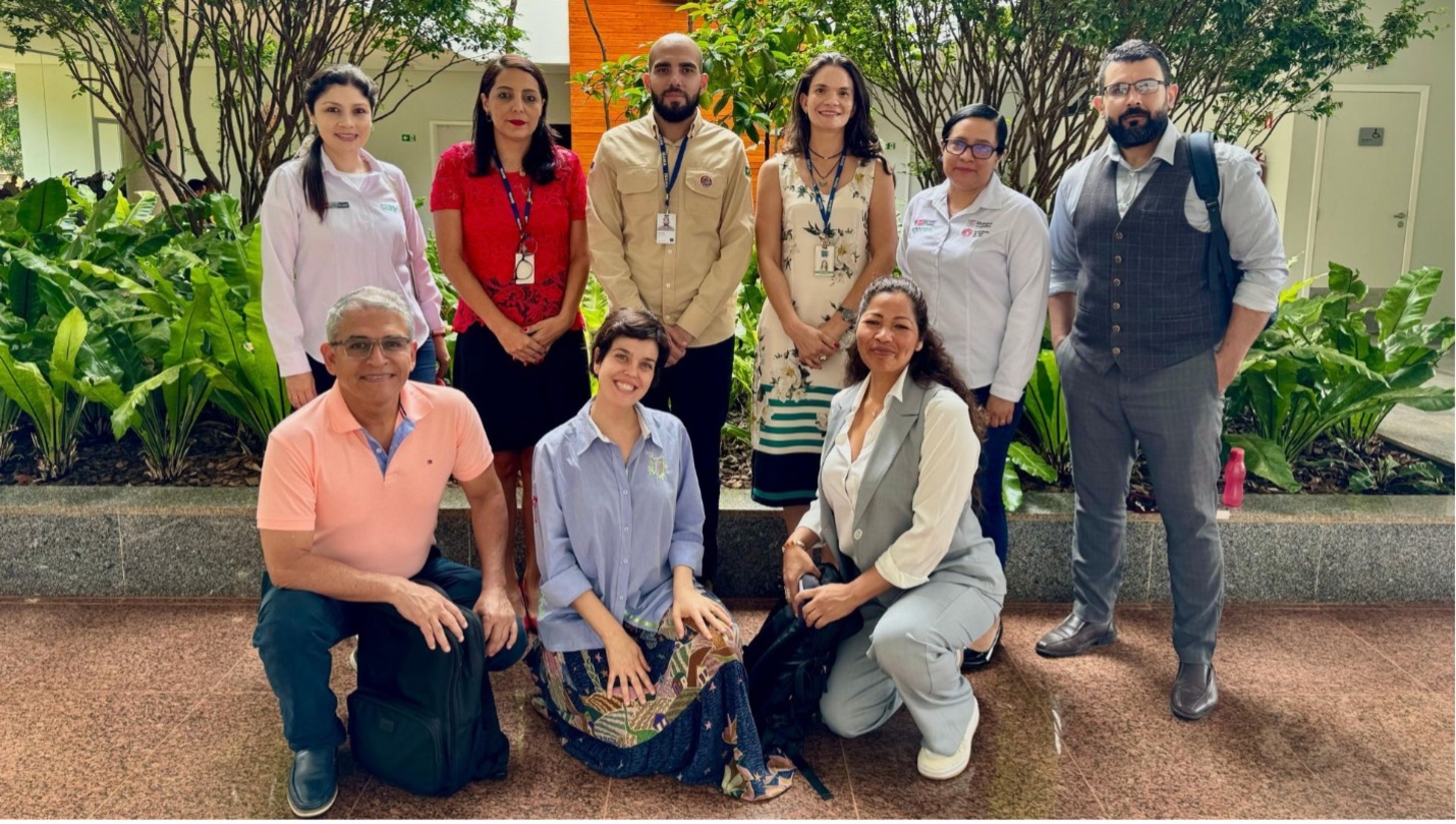
Brasilia, 4 November, 2024 – From October 22 to 24, the United Nations Office on Drugs and Crime (UNODC) Brazil, through the Forest Crime and Illicit Timber Trade Programme (LEAP), brought together representatives of the National Forestry and Wildlife Service (SERFOR), the National Port Authority (APN) and the UNODC Peru for a technical exchange with Brazilian institutions in Manaus (AM) and Brasilia (DF). The main objective of the meeting was to promote an exchange of information, challenges and best practices on forest crimes, especially those affecting the border region between the Peruvian country and the Brazilian states of Amazonas and Acre.
In Manaus, the Peruvian delegation took part in a workshop on timber trafficking organized by the Federal Revenue Service and exchanged experiences with professionals from the Brazilian Institute for the Environment and Renewable Natural Resources (IBAMA) on the inspection of timber cargo and new illegal timber routes between Brazil and Peru.
The Peruvian delegation, together with agents from IBAMA and the Federal Revenue Service, took part in a theoretical-practical mentoring session promoted by UNODC Brazil on container inspection at Porto Super Terminals and visited the unit of the Management and Operational Center of the Amazon Protection System (CENSIPAM) in Manaus to learn about the methods and technologies for mapping deforested areas.
In Brasilia, the Peruvian representatives visited the facilities of IBAMA, CENSIPAM and the National Criminalistics Institute of the Federal Police and were able to learn more about the systems used by these agencies to monitor deforestation and other environmental crimes, as well as Brazilian legislation and procedures for selling timber species in Brazil.
For Ana Luisa Valenzuela, director of Control and Management of SERFOR, one of the agents who joined the delegation, the information acquired from the exchange promoted by the UNODC in Brazil will serve as an example for the implementation of new enforcement actions and the fight against environmental crimes in Peru.
“Our visit to Brazil was very productive, as we shared experiences with institutions that have the same roles as us. In this way, we can improve our actions by applying what we saw here in our country,” she said.
The UNODC initiative made it possible to identify the common challenges faced by each country in tackling environmental crimes, given that a large part of Peru borders Brazil. One of the challenges discussed was the new international scenario for timber trading and trafficking in illegal timber that could emerge after the opening of the Chancay seaport. Scheduled to open in November, this port is located approximately 70 km from Lima, Peru's capital, shortening by a third the average time it takes Brazilian products, and those from Latin America in general, to reach the East.
LEAP – The program supports countries in Latin America and Southeast Asia to identify illicit activities along the timber chain of custody and to prevent, detect and dismantle global criminal networks involved in forest crimes. LEAP focuses on transnational operations and investigations, theoretical and practical training, interagency cooperation and technical expertise in law enforcement. In Latin America, the program operates mainly in six ports in Brazil (Belém-PA, Itajaí-SC, Manaus-AM, Paranaguá-PR, Porto Velho-RO and Santos-SP), as well as other ports in Colombia and Peru.
LEAP is the result of a partnership between the Container Control Programme (CCP) and the UNODC Global Money Laundering Programme (GPML), supported by the Norway International Climate and Forest Initiative (NICFI).